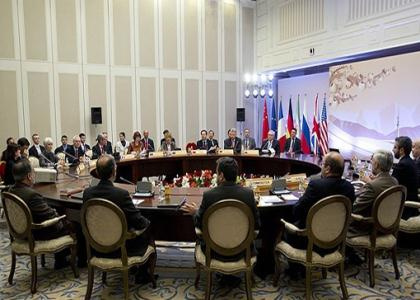One Step Forward in Almaty

It seems that negotiations with the P5+1 have been a step forward. Of course, prior to negotiations, there were also rumors that both parties were determined for the negotiations to at least not have a negative outcome or not reach a deadlock. Apparently this result has been achieved and the least that can be said about the outcome of negotiations with the P5+1 is that the talks have not reached a deadlock and a step forward has been taken.
Both sides have agreed to hold another round of talks in Almaty in early April. In addition, both sides have expressed their satisfaction with the results of the first round of negotiations. But why was the February 27th negotiation important? Or in other words, what is the importance of the issue that both parties have expressed their satisfaction with the outcome of these negotiations? Have significant agreements been made in this round which must be welcomed?
In response, it must be said that important results or agreements were not achieved in Almaty. If this was the case, both sides would have announced it and perhaps there would have been no need for the second round of negotiations in April and only the experts would have pursued the details of the agreements, but such a thing did not happen. Despite the fact that important agreements were not achieved, the first round of Almaty talks will later be recorded as a turning point in the collection of negotiations between Iran and the P5+1.
If specific results were not achieved in Almaty, then why must these negotiations be considered as a turning point? In response, it must be said that it seems that in the Almaty talks, the two parties have, for the first time, taken part with positive intentions. The P5+1 has always viewed Iran as intending to buy time and gain opportunities through negotiation to be able to achieve its ultimate goal, i.e. the production of nuclear weapons. Therefore, the westerners did not take negotiations seriously and did not look to reach an agreement with Iran.
Iran had also viewed the P5+1, or more accurately the western parties, as not being serious in their negotiations with Iran and in finding a solution and reaching an agreement. From Iran's perspective, the objective of the western parties in negotiating with Iran is to state that Iran does not intend to back down, thus they should move to the next step which is reporting to the Security Council and increasing international sanctions against Iran.
In other words, the P5+1 did not have a positive view of Iran and believed that Iran was not serious in negotiations and did not seek to find a solution and Iran, on the other side, was not certain that the westerners were serious in negotiations and that they just took part to give ultimatums and increase sanctions. It seems that, for the first time, there have been cracks in both views in Almaty. Iran has accepted that the western parties might really seek to find a solution and the western parties are, for the first time, taking Iran seriously, that Iran has not come to the table to buy time and prevent the enforcement of more sanctions, but rather to find a solution and reach an agreement.
This is the historic turning point which I previously mentioned: the fact that both sides for the first time have an optimistic and more positive view of each other. Of course, taking this step and reaching this point have not been obtained overnight or caused by the climate of Kazakhstan! This development is the result of hundreds of hours of previous negotiations in Baghdad, Istanbul, and Moscow. There is a long way to go for both parties but the important point is that the dome of mistrust between them has been cracked and, after almost one decade of mistrust towards each other, both sides are now ready to change their views.

